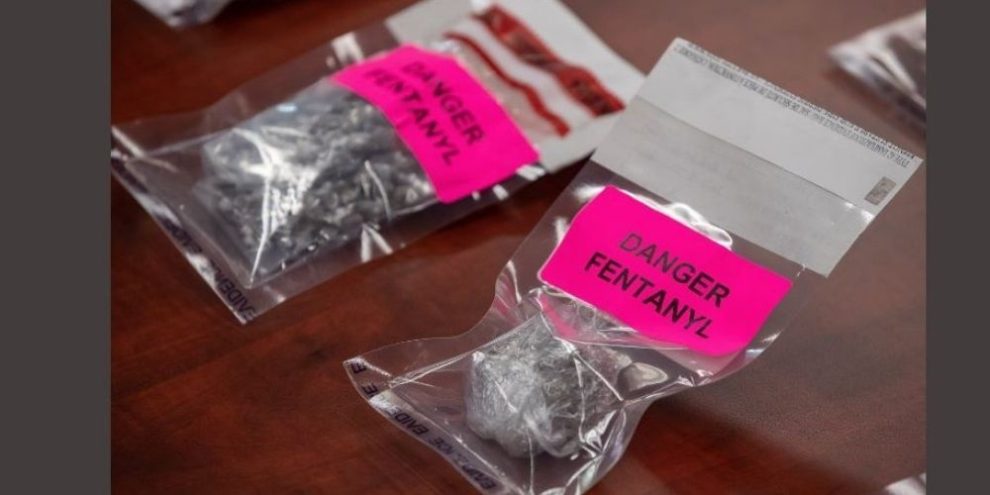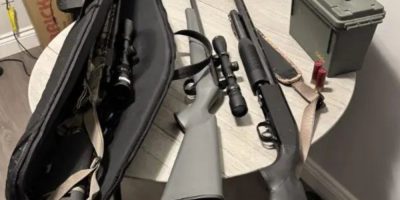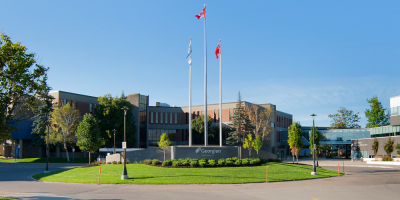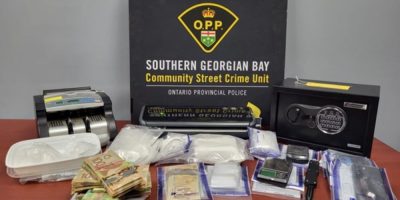
By Camille Bains in Vancouver
Drug users in British Columbia won't be arrested or charged for possessing up to 2.5 grams of illicit drugs starting next year as the province serves as a potential model to stem the overdose crisis across the country.
The three-year exemption from federal drug laws effective Jan. 31 is the first in Canada.
It will apply to those 18 and over and include opioids like heroin and fentanyl, as well as cocaine, methamphetamine and MDMA, also known as ecstasy. Those drugs will no longer be seized by police.
Carolyn Bennett, the federal minister of mental health and addictions, said granting the exemption request is a significant policy change and the first step in much-needed bold action to slow overdose deaths.
Nearly 10,000 people in B.C. have died from overdoses since the province declared a public health emergency in 2016.
“This is not legalization. We have not taken this decision lightly," Bennett said Tuesday in Vancouver.
"And with it comes great responsibility for the health, safety and well-being of the people of British Columbia and is a template for other jurisdictions across Canada."
However, Bennett said she "will not be voting" Wednesday for a private member's bill introduced by New Democrat MP Gord Johns to decriminalize possession of small amounts of drugs across the country. She said the bill lacks "guardrails" around implementation.
"It has been an important bill, but I think that starting with British Columbia is a prudent way to go," Bennett said.
Johns, who represents a riding on Vancouver Island, stood in the House of Commons Tuesday and called on Prime Minister Justin Trudeau to end an "irresponsible" patchwork approach involving the national overdose crisis.
Over 27,000 people across the country died from opioid-related overdoses between 2016 and September 2021.
"There are thousands of families burying their loved ones outside of B.C. Provincial and local governments shouldn't have to fill the void of federal leadership. Lives are at stake," Johns said, asking if the government would support his bill.
Trudeau did not directly answer the question, saying the government is "working with partners to advance a multi-faceted health-based strategy to end the overdose and toxic drug supply crisis."
"There is, of course, more to do and we are taking action with a range of provinces and territories as well as other partners to end this ongoing tragedy," he said.
Members of the Expert Task Force on Substance Use, established by Health Canada, issued a letter Tuesday, also urging the government to vote in favour of the bill.
Alberta Premier Jason Kenney said in Edmonton that he worries about the exemption decision for B.C. being a "slippery slope," and wonders why other provinces weren't consulted about the plan.
“I don’t think it’s hard to see where this is going. And where it’s going, I believe, is in a counterproductive direction."
Bennett said the federal government plans to examine decriminalization applications on a province-by-province basis to ensure each jurisdiction is ready with health and social services, as well as training for police.
"Frankly, Premier Kenney's approach on supervised consumption sites, I think, is not evidence-based, and we're in the business of saving lives," she said in an interview in connection with Kenney's former characterization of the facilities as "illegal drug sites."
Manitoba Justice Minster Kelvin Goertzen said on Tuesday his province would not be following B.C., and instead will focus on cutting off the illicit supply while offering addiction treatment for users.
The threshold of illegal substances allowed in B.C. falls short of the 4.5 grams requested by the province, and that was already deemed too low by some drug-user groups that have criticized the province for failing to adequately consult them.
"The evidence that we have across the country as well as (from) law enforcement and here in British Columbia, as well as the RCMP, is that 85 per cent of the drugs that have been confiscated are under two grams," Bennett said in justifying the government's decision.
However, Garth Mullins, a member of the Vancouver Area Network of Drug Users, which was among the organizations consulted by the B.C. government, said 4.5 grams for a three-day supply was an acceptable threshold based on extensive research the group had done.
Entrenched drug users "hold" multiple drugs and could consume 2.5 grams "for breakfast" so the exemption may not end up helping those who are most at risk of being criminalized, Mullins said.
"What people are buying as 'down' right now often contains, almost always contains, fentanyl to some greater or lesser degree. Fentanyl really rocks your world, but it goes by quick. It's out of your system fast, so if you have a drug habit, you've got to use more frequently."
Bennett said the federal government and B.C. will jointly monitor and evaluate outcomes of the exemption and adapt until the goals of public health and public safety are met.
The City of Vancouver had also forwarded a proposal for decriminalization but is now included in B.C.'s successful application, and Bennett said Toronto Public Health's application is currently the only one under consideration.
"Other jurisdictions that we understand are interested, like Montreal, Edmonton, the Saskatoon police, we haven't received those (proposals) yet," she said.
"We will continue to work with Toronto in the way that we worked with British Columbia to get it to a place that it would be successful."
Unlike in Portugal, for example, decriminalization will not mean forced treatment in B.C., where police have been encouraged by the public safety minster not to charge people, something that will now officially be part of the decriminalization model.
The province will become the first jurisdiction in North America to lift prohibitions on possession of small amounts of so-called hard drugs. In 2020, Oregon decriminalized such possession, but the drugs were still subject to seizure, and those in possession faced a US$100 fine.
Sheila Malcolmson, Bennett's B.C. counterpart, said the approval was sought because shame and fear have kept people from accessing the care they need, while the concern of being criminalized has led many people to hide their addiction and use drugs alone.
"And using alone can mean dying alone, particularly in this climate of tragically increased illicit drug toxicity," she said, adding the focus by police will shift from individual drug users that are stigmatized to enforcement involving organized crime and drug traffickers.
"We will take this year to ready our justice and health systems for this groundbreaking change in Canada," Malcolmson said, adding there is "no magic bullet" to reducing overdose deaths.
Banner image: Evidence bags containing fentanyl are displayed during a news conference at Surrey RCMP Headquarters, in Surrey, B.C., on Thursday, Sept. 3, 2020. THE CANADIAN PRESS/Darryl Dyck
This report by The Canadian Press was first published May 31, 2022.






